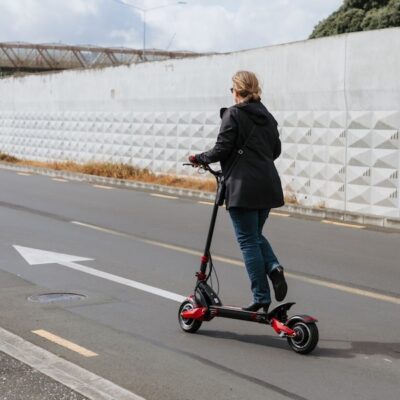Many businesses oblivious to slavery risks in supply chains
New research into Kiwi businesses and their efforts to deal with modern slavery has found that many are oblivious to the role of forced labour and child labour in their […]
New research into Kiwi businesses and their efforts to deal with modern slavery has found that many are oblivious to the role of forced labour and child labour in their production processes. Even fewer are taking steps to address the issue.
The World Vision New Zealand report, Risky Business: A Modern Slavery Risk Profile of New Zealand Businesses, reveals that many businesses don’t know where their products are being made, who is making them, or whether modern slavery is involved.
World Vision New Zealand’s Head of Advocacy and Justice, Rebekah Armstrong, says the research is an indictment of New Zealand’s commitment to human rights and justice.
“Most Kiwi businesses have not taken any steps to address modern slavery in their supply chains and what’s even worse is that New Zealand doesn’t have a law in place to require them to do so. It’s the 21st Century and we should all have zero tolerance for slavery. It’s time New Zealand led from the front and introduced legislation to guide our business community to do the right thing and protect the hard-working people who make the products we buy every day,” she says.
The research carried out by Kantar Public, surveyed more than 200 businesses of different sizes and from a range of different industries. It found:
- Nearly all businesses purchase products or services likely to be made using child labour or forced labour, such as electronics, food and beverages, and textiles.
- Nearly three-quarters of all businesses have no initiatives in place to address modern slavery.
- Nearly half do not know where their products come from beyond their direct suppliers, thereby increasing the risk that they will import products produced with modern slavery.
- A third have little or no understanding of the modern slavery risks within their supply chains.
- Big business is more likely to be taking steps to address modern slavery than small business.
The research provides baseline figures around the proportion of businesses that may be using high-risk services or products; the number of businesses taking steps to address modern slavery; and any gaps in knowledge regarding risk reporting.
Armstrong says it clearly shows that many businesses lack understanding of the true extent of the risk of modern slavery in Kiwi supply chains.
“So many businesses have no idea whether modern slavery might be occurring in their supply chains. We know that Kiwi businesses value fairness and equality. Modern slavery doesn’t fit with these values and our business community needs legislation to provide guidance on the steps they need to take to address this matter,” she says.
Armstrong says it was disappointing to learn that only a third of businesses had taken any steps to address modern slavery.
“Ethical business practice is just part of doing business in the world today and consumers expect businesses to understand their supply chains and to address modern slavery and other human rights risks. New Zealand businesses risk being out of step with key trading partners if they continue with commercial practices as though modern slavery doesn’t exist,” she says.
New Zealand sits behind many of our trading partners, including Australia, the UK, several European Nations, and Canada, which have already introduced supply chain transparency and laws to address modern slavery.
The research also found that small businesses were just as likely to source products and services at high-risk of being made with modern slavery as big businesses.
“New Zealand’s business make-up is largely small to medium-sized companies and this research shows how important it is to include these smaller businesses in modern slavery reporting obligations when we know they operate in high-risk countries or with high-risk products,” Armstrong says.
“The number of people trapped in slavery now sits at a staggering 50 million. It’s a shameful statistic and yet New Zealand has still not taken action. This report is the latest in a mountain of evidence and public support for modern slavery law in New Zealand. It’s now time for action.”
World Vision is urging the New Zealand government to take swift action to advance a modern slavery bill to parliament ahead of the October election.






